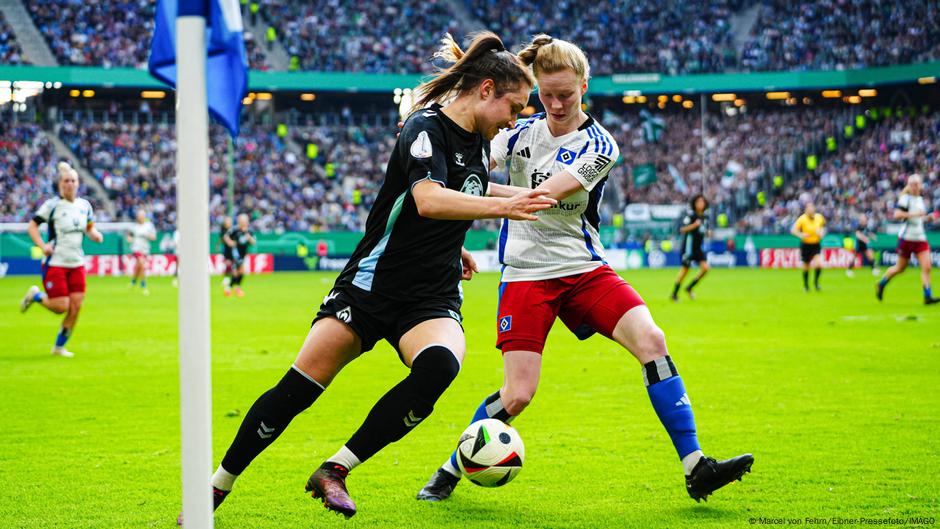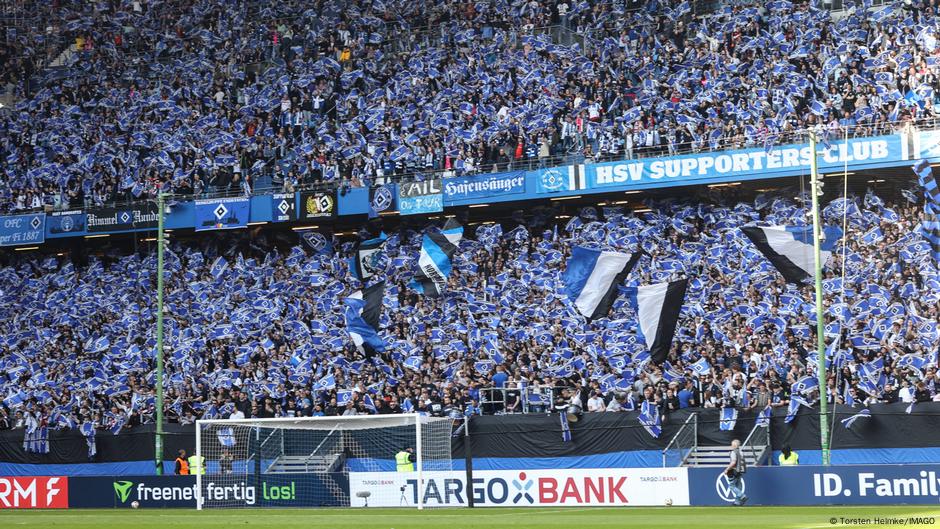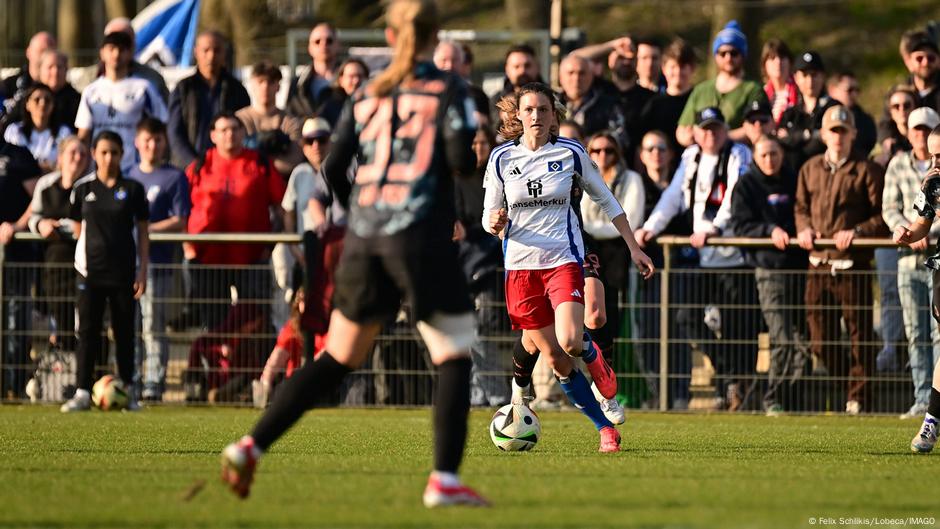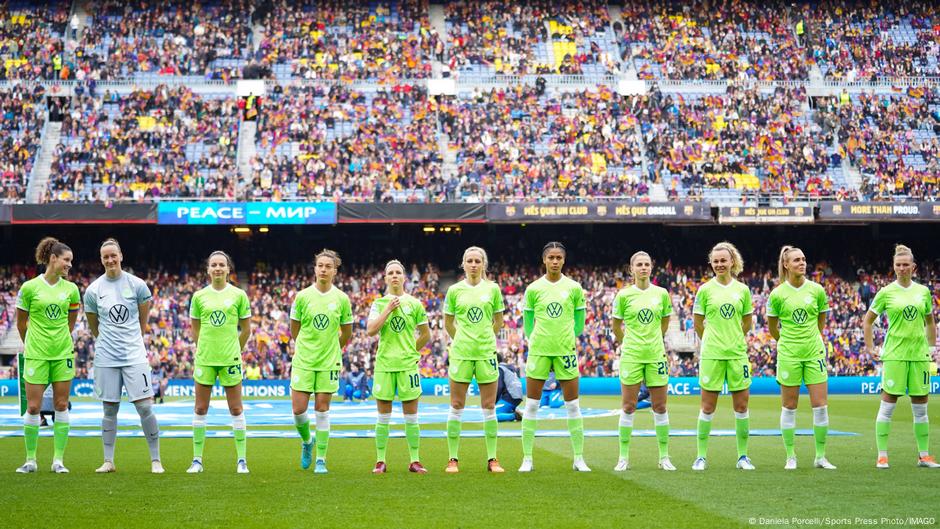Featured
- Get link
- X
- Other Apps
Record-Breaking: 57,000 Fans Pack Women’s German Cup Semifinal!
The match between Hamburg andWerder Bremen established a new record for attendance at a women's club game in Germany. With Volksparkstadion completely filled, the away team secured their place in the German Cup final.

Never before have this many supporters attended a women's football club match in Germany. A record-breaking 57,000 fans watched visitors Bremen beat Hamburg to seal a ticket to the women's German Cup final.
These are the matches that get you started with football from childhood," stated Bremen captain Lina Hausicke. "I can’t even measure how many years’ worth of feelings I experienced today.
In the second half, the match lived up to expectations. Even though Saskia Matheis was shown a red card, Bremen still scored first when Sophie Weidauer capitalized on an error made by the home team's goalkeeper. Nevertheless, the underdog squad gave their supporters something thrilling; Sarah Stöckmann found the back of the net late in the game, forcing overtime at 1-1. Yet, in the final moments, both Weidauer and Verena Wieder struck, resulting in a 3-1 win for the visiting team.
Despite missing the finale, Hamburg’s team captain Sarah Stöckmann will cherish this particular game in her memory.
I am filled with pride knowing that we were the pioneers in Germany to perform in front of such a large audience. This will not be our final instance, and the experience we shared today was incredible. Today felt like a soccer celebration for all of Germany.

Surge in ticket sales for the final
The match at Hamburg’s Volksparkstadion was already guaranteed to draw a bigger crowd than Bremen's final against Bayern, which will be held at a smaller stadium in Cologne. That was the venue of the previous record crowd, set during the 2023 cup final with 44,808 in attendance.
Hamburg's women's team usually plays its home matches at a training ground within the stadium's complex called "Platz 6" (literally: pitch six). Up to 630 fans can stand on the sidelines there, with the Volksparkstadion looming in the background. Meters away from the venue but miles away from today's big stage energy.

Asked what it would be like to play on their usual ground again, Stöckmann told NewsBlog, “It’s the reality, I think we all know how to contextualize this. We’ll still be drawing inspiration from this when we’re back on Platz 6.”
Many among the 57,000 spectators present had their inaugural experience with women’s professional football at this event. Typically, the Volksparkstadion hosts games from Bundesliga 2 for male teams and had previously seen the female squad play just one time before—when an audience of 16,529 witnessed them win their quarterfinal match earlier this year in February.
The astonishing surge of ticket sales for this match can be partly explained by the men's international break, which means no professional men's club sides were in action this weekend. With tickets starting at €9, the stadium was sold out over two weeks before kickoff.
A local grudge match
Another factor is the regional rivalry between the clubs and cities of hosts Hamburg and visitors Bremen. The Nordderby between HSV and Werder is one of the oldest derbies in German football, also colored by the historic rivalry between the cities dating back to the Middle Ages.
“What’s really positive today is that it’s not dangerous at all,” says Hamburg supporter Alexandra, who regularly attends men’s matches. “Usually when Bremen faces Hamburg there’s lots of police. This is much nicer. It’s peaceful and festive today.”
Johannes, a Werder Bremen supporter, arrived with his wife and son in tow. “It’s my first ever women’s football match. To come to a Nordderby with my family is a dream. And to show the women they can do it too. I think it’s great.”
With the teams for both gender categories currently not playing in the same league divisions, fans have been starved of competitive clashes. While there was a familial feeling outside the ground, the atmosphere inside the stadium was that of a fiercely contested derby, with both sets of fans raucously urging on their charges.
Bremen’s Larissa Mühlhaus, who was born in Hamburg and grew up watching games at the Volksparkstadion, even said she and other teammates were experiencing earache.
Shifting to the main event
Transitioning to larger venues Over recent years, clubs have often chosen significant fixtures as opportunities to play at their primary stadiums. The global record for the highest attendance at a women’s football game is held by a UEFA Women's Champions League encounter between Barcelona Femení and Wolfsburg, which took place at the Camp Nou with an audience of 91,648 in April 2022.

Moritz, a supporter of the Hamburg team, states, “The ambiance truly matters. If the women’s squad played here frequently, I would definitely consider attending. However, I’m not sure it would appeal to me if only around 300 spectators were present since I enjoy the experience at the stadium primarily due to the vibrant atmosphere and being immersed in a larger crowd.”
Decisions to hoist women’s matches onto a bigger stage have largely been vindicated but still remain the exception to the rule. The cup competition's other semifinal was held at the FC Bayern Campus, in front of a sell-out crowd of just 2,500, despite the fact that the men's Allianz Arena was vacant on the day.
The current status of the women's sport
So does this milestone rank as a one-off or sign of things to come?
Since the start of the decade, women's football has surged in popularity. Euro 2022 in England saw over half a million fans stream to stadiums, doubling the previous tournament's numbers. Almost two million fans attended the 2023 Women's World Cup in Australia and New Zealand, an increase of more than 600,000 from the previous record.
Germany’s Frauen-Bundesliga is expanding, stocking up from 12 to 14 teams in the 2025/26 season, which could well see HSV join the top flight.
And yet, the game's finances still lag far behind those of their male counterparts. Through a survey including 669 clubs from around the world, FIFA found the average salary for players is $10,900, meaning the vast majority of players cannot rely solely on their income from football. Average global attendances have risen to 1,713 but matchday revenues remain low, also due to an average ticket price of $9.30 for adults.
For now, records like the one broken in Hamburg are still an outlier, a momentary glimpse of what could be the future of the women's game. But with each of these instances, the viability and visibility of the sport are strengthened.
Hamburg’s 33-year-old Jobina Lahr is optimistic, despite conceding she is unlikely to experience such an occasion again in her career.
“We’ve taken a big step toward the next generation experiencing this more often. They’re emotions you can’t grasp. Endorphins, adrenaline, you don’t know what to do with your feelings.”
Edited by: Louis Oelofse
Author: Max Merrill (in Hamburg )
- Get link
- X
- Other Apps
Popular Posts
ABC Apologizes After Claudia Long Fabricates False Claims About Two High-Profile Politicians
- Get link
- X
- Other Apps
Oyetola Names Adeniran Aderogba New President/CEO of RMDB – Exclusive International Update
- Get link
- X
- Other Apps
Comments
Post a Comment